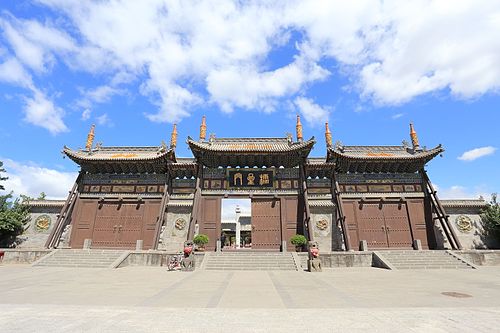Taoismnoun
One of the popular religions of China, sanctioned by the state.
Taoismnoun
a Chinese sect claiming to follow the teaching of Lao-tzu but incorporating pantheism and sorcery in addition to Taoism
Taoismnoun
religion adhering to the teaching of Lao-tzu
Taoismnoun
popular Chinese philosophical system based in teachings of Lao-tzu but characterized by a pantheism of many gods and the practices of alchemy and divination and magic
Taoismnoun
philosophical system developed by of Lao-tzu and Chuang-tzu advocating a simple honest life and noninterference with the course of natural events
Taoismnoun
a Chinese philosophy based on the writings of Lao-tzu, advocating humility and religious piety.
Taoism
Taoism (), or Daoism (), is a philosophical and spiritual tradition of Chinese origin which emphasizes living in harmony with the Tao (Chinese: 道; pinyin: Dào; lit. 'Way', or Dao).
Confucianismnoun
The political morality taught by Confucius and his disciples, which forms the basis of the Chinese jurisprudence and education. It can hardly be called a religion, as it does not inculcate the worship of any god.
Confucianismnoun
the teachings of Confucius emphasizing love for humanity; high value given to learning and to devotion to family (including ancestors); peace; justice; influenced the traditional culture of China
Confucianism
Confucianism, also known as Ruism, is a system of thought and behavior originating in ancient China. Variously described as tradition, a philosophy, a religion, a humanistic or rationalistic religion, a way of governing, or simply a way of life, Confucianism developed from what was later called the Hundred Schools of Thought from the teachings of the Chinese philosopher Confucius (551–479 BCE).




































